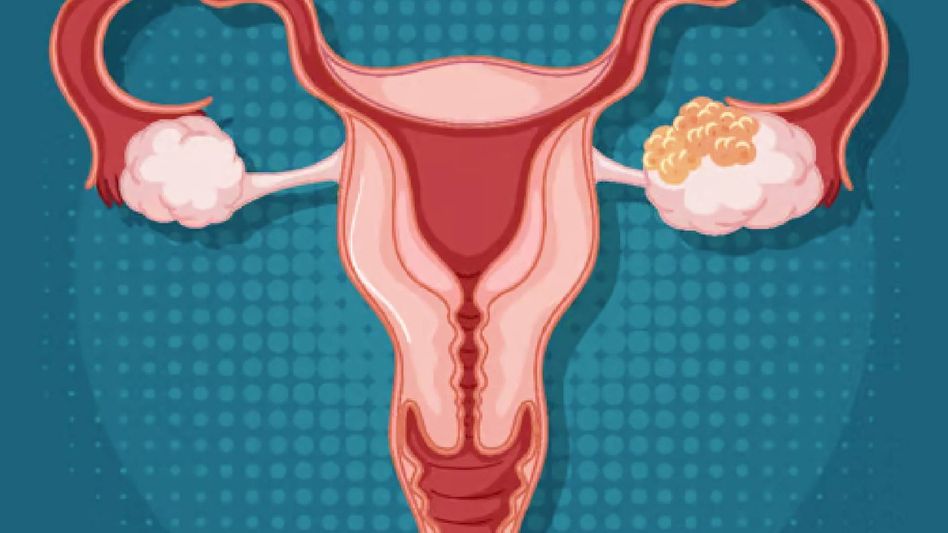PCOD (Polycystic Ovarian Disease) : causes, symtoms, difference between PCOS and PCOD and cures
Polycystic Ovary Syndrome (PCOS), a hormonal disorder affecting people with ovaries, especially during reproductive years, impacts fertility, metabolism, and overall health. Though the causes are not fully understood, it is thought to involve genetic and environmental factors.

Polycystic Ovary Syndrome (PCOS) is a common hormonal disorder that affects people with ovaries, typically during their reproductive years. This condition can have a significant impact on a person's fertility, metabolism, and overall health. Understanding the causes, symptoms, and potential cures for PCOS is essential for effective management.
Causes of PCOS:
The exact cause of PCOS is not fully understood, but it is believed to involve a combination of genetic and environmental factors. Some key factors contributing to PCOS include:
-
Insulin Resistance: Insulin is a hormone that regulates blood sugar levels. Insulin resistance occurs when the body's cells don't respond effectively to insulin, leading to an increase in insulin production. This can stimulate the ovaries to produce more androgens, such as testosterone, contributing to PCOS.
-
Hormonal Imbalance: Elevated levels of androgens, commonly known as male hormones, disrupt the normal menstrual cycle and can lead to the development of cysts on the ovaries. High levels of insulin also contribute to increased androgen production.
-
Genetics: There is evidence to suggest a genetic predisposition to PCOS. If a person has a family history of PCOS, they may be more likely to develop the condition.
-
Inflammation: Chronic inflammation may play a role in the development of PCOS. Inflammation can impact insulin sensitivity and contribute to hormonal imbalances.
Symptoms of PCOS:
PCOS manifests in a variety of symptoms, which can vary in severity. Common symptoms include:
-
Irregular Menstrual Cycles: One of the hallmark signs of PCOS is irregular periods or a lack of menstruation.
-
Hyperandrogenism: Elevated levels of androgens can lead to symptoms such as acne, excessive hair growth (hirsutism), and male-pattern baldness.
-
Ovulatory Dysfunction: PCOS often results in anovulation, where the ovaries fail to release eggs regularly, impacting fertility.
-
Polycystic Ovaries: Ultrasound imaging may reveal enlarged ovaries with small cysts, although not everyone with PCOS will have polycystic ovaries.
-
Weight Gain: Many individuals with PCOS experience weight gain or have difficulty losing weight.
Difference Between PCOD and PCOS:
PCOD (Polycystic Ovary Disease):
PCOD primarily refers to the presence of multiple cysts (fluid-filled sacs) on the ovaries. It is a structural condition characterized by the development of small, immature follicles in the ovaries. PCOD is often diagnosed through imaging studies, such as ultrasound, which reveals the presence of these cysts.
Key features of PCOD:
- Presence of multiple cysts on the ovaries.
- Irregular menstrual cycles.
- Symptoms may include acne, hirsutism (excessive hair growth), and weight gain.
PCOS (Polycystic Ovary Syndrome):
PCOS, on the other hand, is a broader term that encompasses not only the structural aspect of cysts on the ovaries but also includes a range of hormonal and metabolic abnormalities. PCOS is considered a syndrome because it involves a cluster of symptoms that may vary among individuals. In addition to the presence of cysts on the ovaries, PCOS is characterized by hormonal imbalances, particularly elevated levels of androgens (male hormones like testosterone).
Key features of PCOS:
- Irregular menstrual cycles.
- Hyperandrogenism, leading to symptoms like acne, hirsutism, and male-pattern baldness.
- Ovulatory dysfunction, which can impact fertility.
- Insulin resistance and potential for metabolic issues.
Cures and Management:
While there is no cure for PCOS, several lifestyle changes and medical interventions can effectively manage symptoms:
-
Lifestyle Modifications: Healthy lifestyle changes are crucial. Regular exercise, a balanced diet, and maintaining a healthy weight can help manage insulin resistance and improve symptoms.
-
Medications: Hormonal birth control, anti-androgen medications, and insulin-sensitizing drugs may be prescribed to regulate menstrual cycles, reduce androgen levels, and improve insulin sensitivity.
-
Fertility Treatments: For individuals struggling with infertility, fertility medications such as Clomiphene or assisted reproductive technologies like in vitro fertilization (IVF) may be recommended.
-
Dietary Changes: A low-glycemic-index diet, rich in whole foods and fiber, can help stabilize blood sugar levels and manage insulin resistance.
-
Stress Management: Chronic stress can exacerbate PCOS symptoms. Stress reduction techniques such as yoga, meditation, or counseling may be beneficial.
PCOS is a complex and multifaceted condition that requires a holistic approach to management. By addressing the underlying factors such as insulin resistance, hormonal imbalances, and lifestyle factors, individuals with PCOS can effectively control their symptoms and improve their overall quality of life. Early diagnosis and intervention are crucial, as managing PCOS can reduce the risk of long-term complications such as type 2 diabetes and cardiovascular disease. Consultation with healthcare professionals and a personalized treatment plan are essential for navigating the challenges posed by PCOS and promoting optimal health.
Copyright©2026 Living Media India Limited. For reprint rights: Syndications Today









